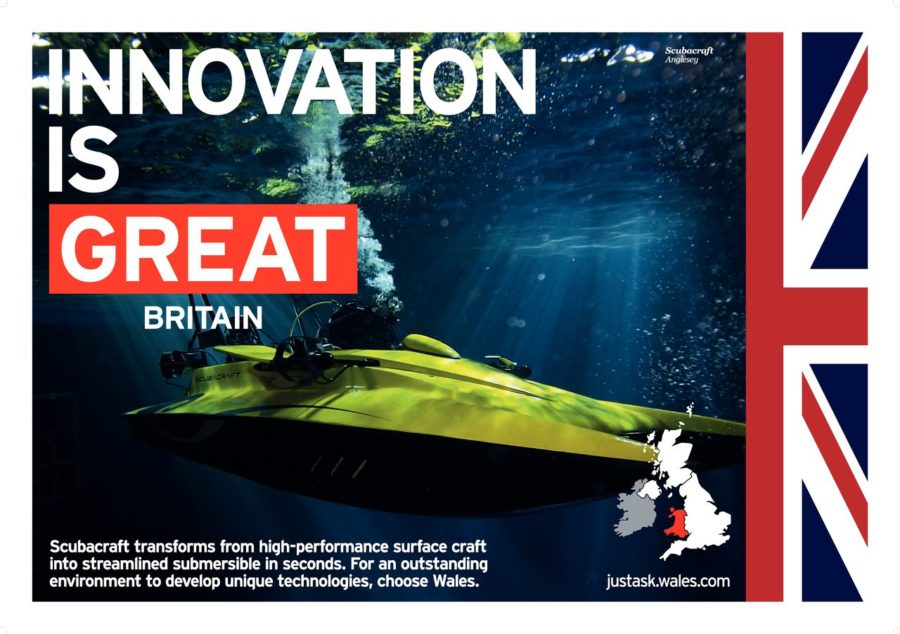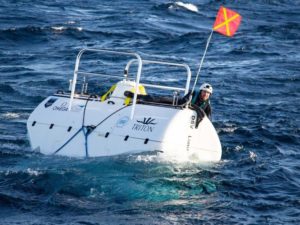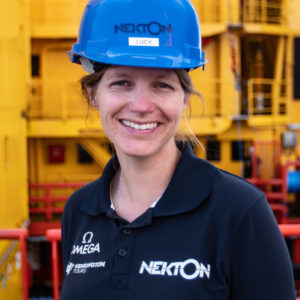British High Commissioner to Maldives
Part of UK in Maldives
7th June 2020 Maldives
Innovation for a Sustainable Ocean: Maldives & the Nekton Mission 
Were it not for covid, for World Oceans Day this year I’d have been writing about early reports from the Nekton Mission’s First Descent in Maldives, following their exploration of sites around Addu Atoll, the Zero Degree Channel and Gnaviyani Atoll. This ambitious expedition to “the Midnight Zone” of the Indian Ocean (the least explored ocean in the world) should have completed its field research by now. The team would have been chomping through terabytes of data at their Oxford base, just as they did after their expedition to Seychelles which I also had the thrill of witnessing, in 2019.
The theme of this year’s World Oceans Day is “Innovation for a Sustainable Ocean”. What distinguishes Nekton from other deep sea expeditions is a commitment to innovation in both scientific method and sustainable development, with a focus on four key areas: standardising research; ArtificiaI Intelligence; DNA; and Big Data. You can read more about how in this excellent article in the magazine of the Royal Geographical Society.

We can still look forward to the arrival of Nekton’s research vessel, DSSV Pressure, packed to the gunwales (if modern ships have such things) with cutting edge technology like the submersible Limiting Factor (see photo, right) and marine biologists like Oxford University’s Dr Lucy Woodall (photo below). Nekton will survey the unknown wildlife of the depths and study the effects of climate change on marine life 4,000 metres below the surface around sea mounts which are biodiversity hotspots (check out the Indian Ocean’s seamounts about 6-7 mins into this great educational video link).

Back on the surface of the sea it’s, sadly, all too easy to see the effects of climate change in this part of the ocean. Maldives’ atolls, extending north-south in a delicate chain for about 900 km, are the largest reef system in the Indian Ocean; the seventh-largest in the world. This precious ecosystem is affected by climate change-induced sea temperature rise and ocean acidification, with corals being bleached and the centuries-old reefs, and associated marine life that tourists flock to explore, in grave danger. Check out #CoralBleaching2020 where concerned ocean citizens like Hussain Rasheed (aka Sendi) post updates.
The world’s tropical coral belt can’t survive too many successive bleaching events. In 1998 over 90% of corals here were damaged or killed. Coral can bounce back, but it takes time; meanwhile, creatures that depend on the coral have to find other homes and food – or die. The most recent mass-bleaching event, in 2016, caused bleaching to 75% of coral in surveyed sites. That’s 75% of the partially-recovered 90%, remember.
When coral dies, the calciferous reef it has built begins to crumble. As well as being home and larder to reef fish and other life on which larger species, like sharks, depend, the reef forms a protective barrier around islands, breaking the waves and preventing coastal erosion.
So, coral damage in Maldives affects fisheries and tourism but it also makes Maldives more vulnerable to storms and loss of beaches. And here, loss of sand means loss of land. Maldives’ landmass is less than 1% of its territory, and none of it is more than 2.5m above sea level. In short, the loss of coral reefs is not only a threat to the economy, but also to national security – even national existence.
Footnote: if you made it to the end of this blog and want to know more, I urge you to follow the extensive links I’ve included and go on your own journey into the deep, courtesy of the many excellent online teaching and learning resources Nekton and their partners have made available.









